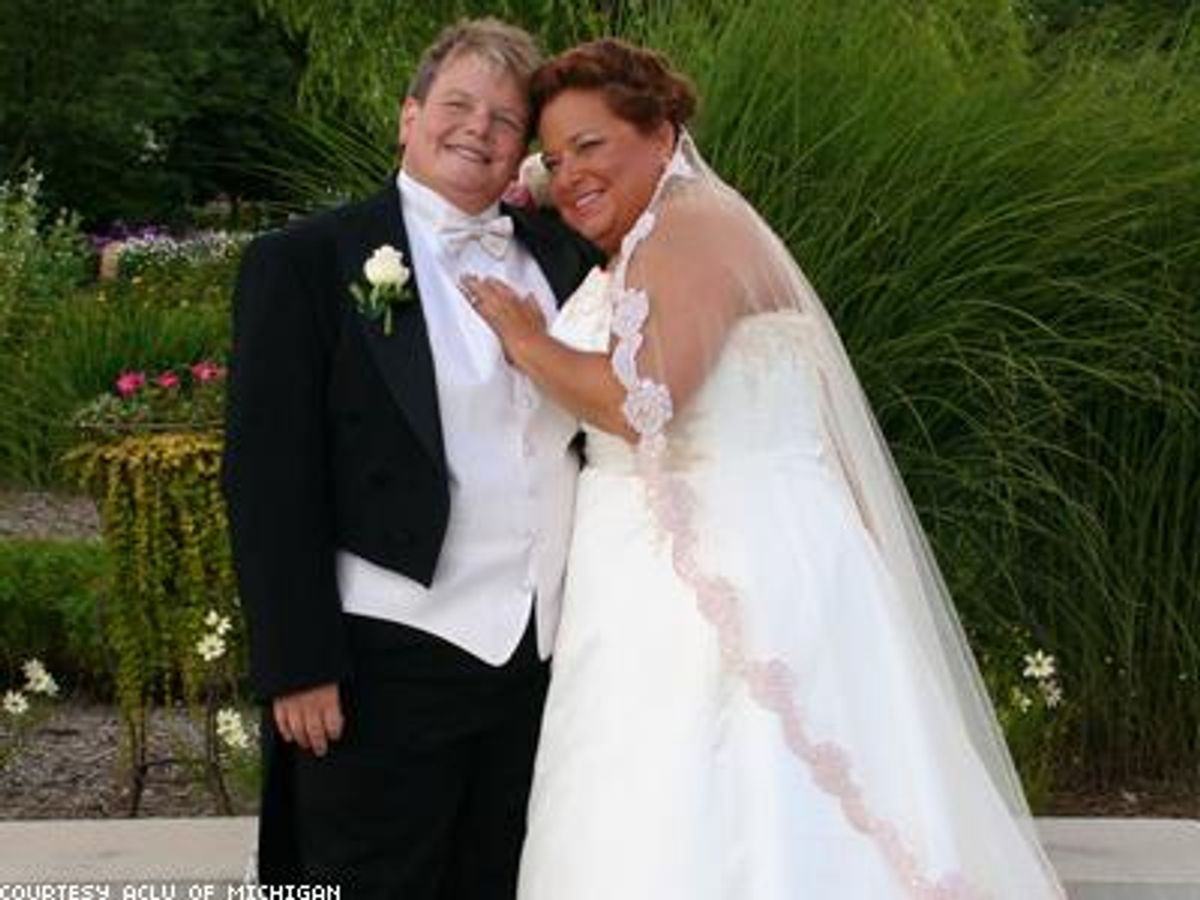After a federal judge struck down Michigan's constitutional amendment prohibiting marriage equality last month, more than 300 same-sex couples raced to four county clerks' offices to tie the knot before a stay was placed on the ruling the next day.
And while Michigan's Republican governor has "suspended" the rights of those newlywed same-sex couples, the American Civil Liberties Union is challenging that decision in a lawsuit filed in state court today. The case was filed on behalf of eight same-sex couples who were wed in the fewer than 24 hours when same-sex marriage was legal in Michigan.
"As a matter of law and fundamental fairness, the state is obligated to extend the protections that flow from marriage to all those who celebrated their weddings last month," said Kary L. Moss, the ACLU of Michigan's executive director, in a statement. "Doing anything less treats legally married gay and lesbian couples like second-class citizens, and adds to the confusion and instability these loving families have endured."
This latest lawsuit, which is separate from the federal case that resulted in district judge Bernard Friedman's ruling striking down the state's anti-marriage equality law, argues that because the plaintiffs entered into a marriage contract that was legal in the state at the time it was performed, the state cannot retroactively revoke benefits afforded by the civil relationship.
Among the plaintiffs are several same-sex couples who are raising children and want to legally adopt their partner's children or provide health insurance and legal recognition for their families. Other plaintiffs include those in which one partner has health problems but cannot be covered by their partner's health insurance, or a surviving partner cannot listed as a spouse if the other were to die.
Although the state of Michigan won't recognize the marriages that took place, thereby denying access to all the benefits granted to married opposite-sex spouses in the state, the federal government will consider those gay and lesbian Michiganders legally married, allowing them to access certain benefits and file joint federal taxes.
Similar situations have occurred -- and prompted litigation -- in other states where marriage equality briefly took effect before a legislative or judicial hold was placed on the pro-equality rulings. More than 1,300 same-sex couples were married in Utah's 17-day equality window, and the ACLU has filed a suit intended to force the state to recognize those marriages.
In May 2008 the California Supreme Court ruled that marriage equality should be the law of the land, with the ruling going into effect the following month -- and more than 18,000 same-sex couples wed before antigay forces successfully convinced voters statewide to support Proposition 8, which revoked marriage equality in California in November 2008. After a series of cases -- which included a federal challenge to the constitutionality of Prop. 8 that was successfully argued at the U.S. Supreme Court -- marriage equality finally returned to the Golden State on June 28, 2013.
Read more about the ACLU's latest case here.



















































































